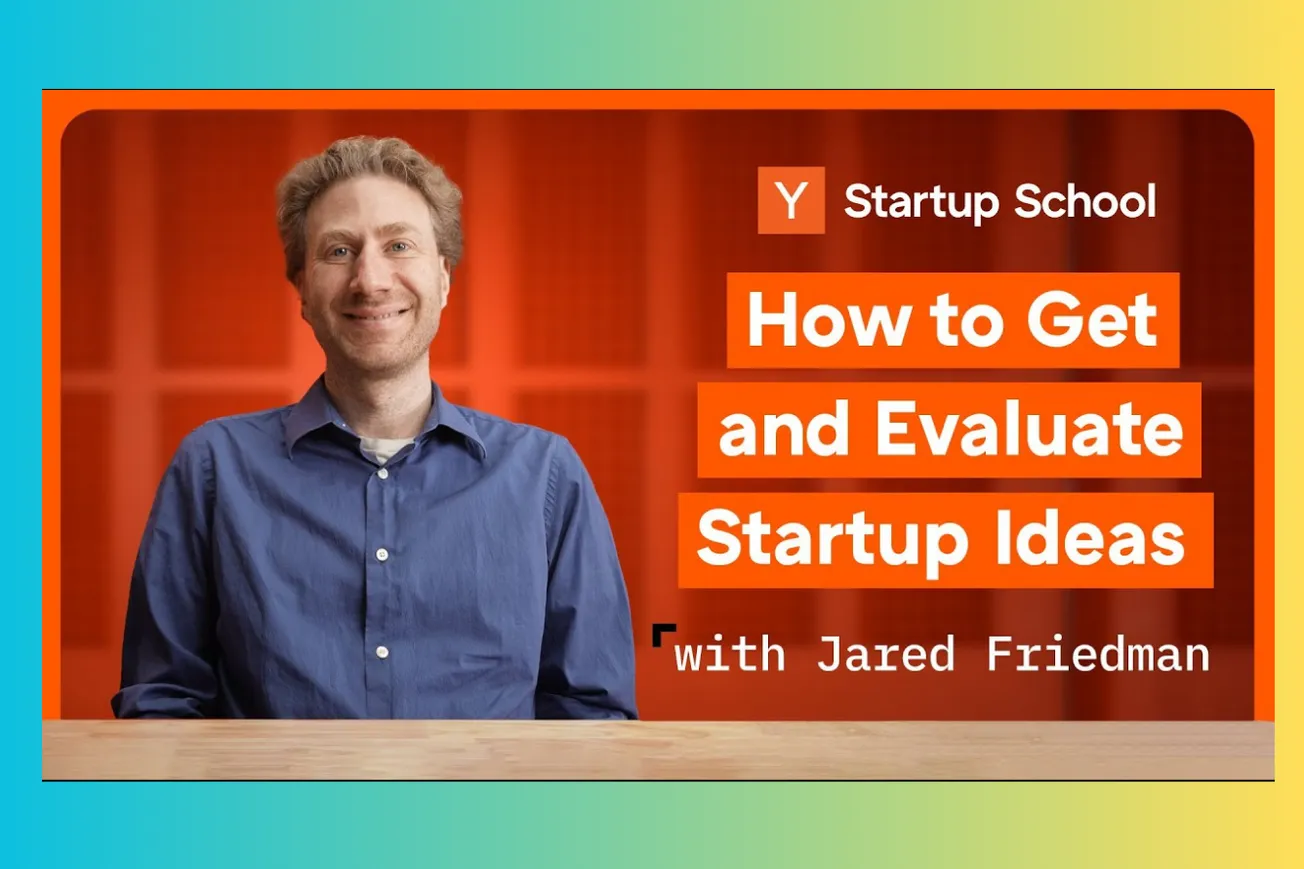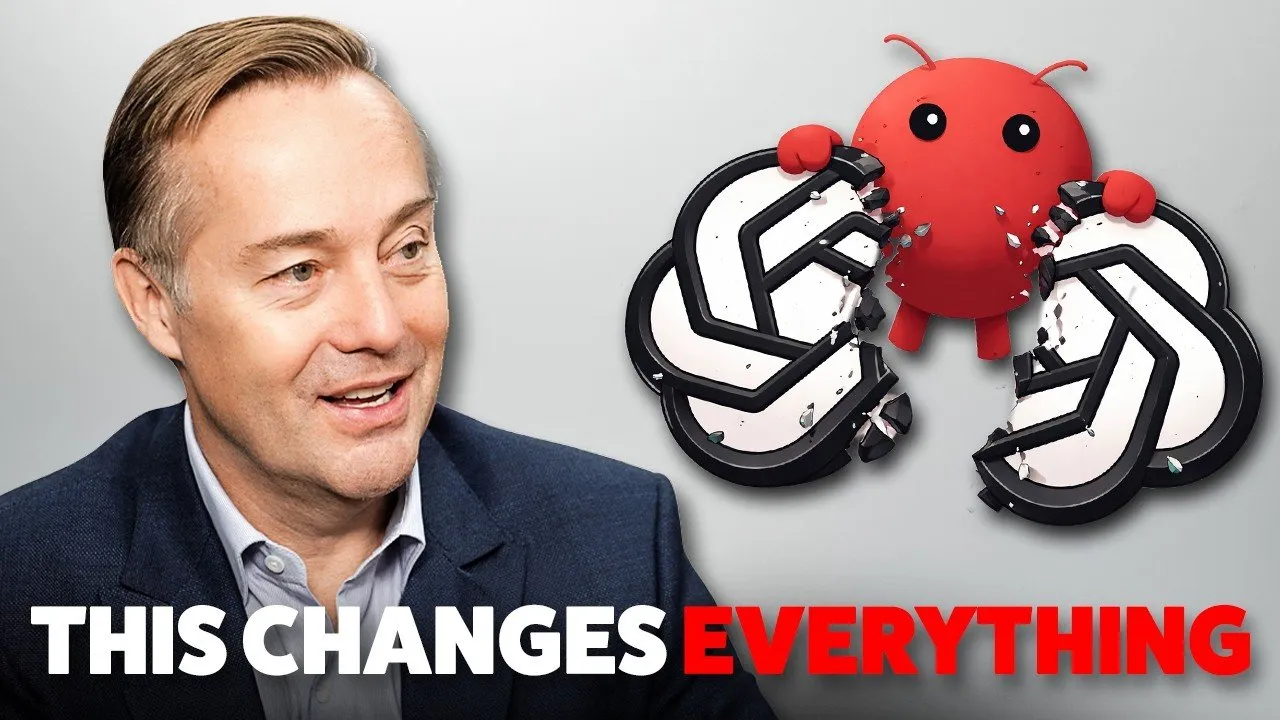Table of Contents
Key Takeaways
- The most common mistake founders make is building something that doesn't solve a real problem for users ("solution in search of a problem").
- Great startup ideas typically come from problems founders have personally experienced or areas where they have domain expertise.
- Three counterintuitive qualities that often make good startup ideas: ideas that are hard to get started, ideas in boring spaces, and ideas with existing competitors.
- Most billion-dollar companies didn't start with a perfect idea but with a promising starting point that evolved over time.
- There are two types of viable markets for startups: markets that are already large, and markets that are small but growing rapidly.
Understanding Common Startup Idea Mistakes
Solution in Search of a Problem (SISP)
- Many founders start with a technology they find interesting (like AI) and then look for applications
- This approach typically leads to solving problems that aren't actual pain points
- If users don't care about the problem, they won't care about your solution
- Better approach: Fall in love with a problem first, then develop solutions
Tar Pit Ideas
- Common ideas that seem promising but have structural reasons why they're difficult or impossible to execute
- Example: Apps for coordinating social meetups have been attempted for 20+ years with limited success
- These ideas attract many founders because they're superficially plausible and address widespread problems
- How to avoid tar pits:
- Google your idea thoroughly to see previous attempts
- Talk to founders who've worked on similar ideas
- Understand the specific challenges that caused others to fail
Insufficient Idea Evaluation
- Many founders jump into the first idea they have without proper evaluation
- Equally dangerous: Waiting for the "perfect" idea (which doesn't exist)
- The ideal approach is finding a balance - a strong starting point with potential to evolve
- Think of ideas as starting points, not fixed destinations
Evaluating Startup Ideas: 10 Key Questions
1. Do you have founder-market fit?
- Are you and your team the right people to solve this problem?
- Example: PlanGrid founders combined construction industry expertise with technical skills
- This is perhaps the most important criteria for startup success
- Look for ideas where your unique background gives you an advantage
2. How big is the market?
- Viable startup markets are either:
- Large markets (billion+ dollars) that already exist
- Small markets that are growing extremely rapidly
- Example: Coinbase entered the Bitcoin trading market when it was tiny but growing exponentially
3. How acute is the problem?
- The best problems are ones where:
- The pain point is significant
- Current solutions are inadequate or non-existent
- Example: Brex identified that startups couldn't get corporate credit cards from traditional banks
4. Do you have competition?
- Counter-intuitively, having competition often validates market demand
- Most successful startups had competitors when they launched
- For entrenched competitors, you need a unique insight or approach
- No competition might indicate no market demand
5. Do you want this yourself? Do you know people who want it?
- If neither you nor people you know want your solution, that's concerning
- Direct personal experience with the problem creates better understanding
- Talk to potential users early and often
6. Has this recently become possible or necessary?
- Great opportunities often arise from recent changes:
- New technologies
- Regulatory changes
- Market shifts
- Example: Checkr built background check APIs when on-demand economy companies needed to screen workers at scale
7. Are there proxies for success?
- A proxy is a similar business succeeding in a different market
- Example: Rappi saw food delivery working in the US and adapted it to Latin America
- Proxies validate that the business model can work
8. Is this an idea you'd want to work on for years?
- Initial excitement about an idea often fades
- Success is more about execution than the initial concept
- Many initially "boring" ideas become compelling as they gain traction
9. Is this a scalable business?
- Pure software businesses scale well
- Services requiring high-skill human labor often don't scale
- Be cautious of businesses that require intensive human operations
10. Is this a good idea space?
- An "idea space" is a class of related startup ideas
- Different idea spaces have dramatically different success rates
- Choosing a fertile idea space improves chances of finding adjacent opportunities
- Example: Fintech infrastructure and enterprise SaaS have had high success rates
Counter-Intuitive Qualities of Good Startup Ideas
Ideas That Are Hard to Get Started
- Barriers to entry can be an advantage - they deter competition
- Example: Stripe required complex banking relationships and credit card infrastructure knowledge
- These challenges deterred others, leaving a massive opportunity for founders willing to tackle them
Ideas in Boring Spaces
- Unsexy industries often have major untapped opportunities
- Example: Gusto revolutionized payroll software in a "boring" space
- Boring ideas have less competition than trendy ones
- Once execution begins, the day-to-day work is similar regardless of how "exciting" the idea sounds
Ideas with Existing Competitors
- Markets with competitors but no dominant player often indicate opportunity
- Example: Dropbox was the 20th cloud storage company but succeeded with better UX
- Many competitors + low adoption = unsolved problem with market demand
- Look for spaces where competitors exist but haven't nailed the solution
Generating Startup Ideas
Organic vs. Deliberate Idea Generation
- 70% of YC's top 100 companies found ideas organically rather than through deliberate brainstorming
- Deliberate brainstorming often leads to "tar pit" ideas
- Long-term strategies to position yourself for organic ideas:
- Become an expert in a valuable field
- Work at startups to gain domain expertise
- Build things you find interesting, even if they're not businesses yet
Seven Recipes for Finding Ideas
1. Start with what your team is especially good at
- Leverage your unique expertise
- Ensures automatic founder-market fit
- Example: Rezi founders used their real estate and financing expertise
2. Start with problems you've personally encountered
- Look for problems you're in a unique position to understand
- Example: Vetcove founders saw inefficient veterinary supply purchasing through family experience
- Action plan: Systematically review all jobs, internships, and life experiences
3. Think of things you personally wish existed
- Classic approach used by many successful founders
- Example: DoorDash founders wanted food delivery to their Stanford dorms
- Warning: Verify that there isn't a structural reason why it doesn't exist yet
4. Look for recent changes creating new opportunities
- Identify shifts in technology, regulations, or behaviors
- Example: Gather Town pivoted to virtual spaces when the pandemic changed how people interact
- Stay alert to inflection points and timing opportunities
5. Find successful companies and look for new variants
- Apply proven models to new markets or niches
- Example: Nuvo Cargo applied Flexport's model to Latin American imports
- Evaluate ideas analytically based on market size and proxies
6. Talk to people about their problems
- Interview potential users in a targeted idea space
- Example: A-to-B founders visited truck stops to talk directly with drivers
- Combine with research and conversations with industry experts
7. Look for big industries that seem broken
- Large broken industries are ripe for disruption
- Search for inefficiencies and pain points in established markets
Bonus: Find a Co-founder with an Idea
- Many potential co-founders already have ideas they're developing
- Platforms like YC's co-founder matching can connect you with idea-holders
Final Thoughts
- It's often difficult to know if a startup idea is good without testing it
- The best way to validate an idea is to launch it and get market feedback
- When in doubt, build an MVP and see if users respond positively
- Ideas evolve substantially during execution - focus on starting with a promising direction









